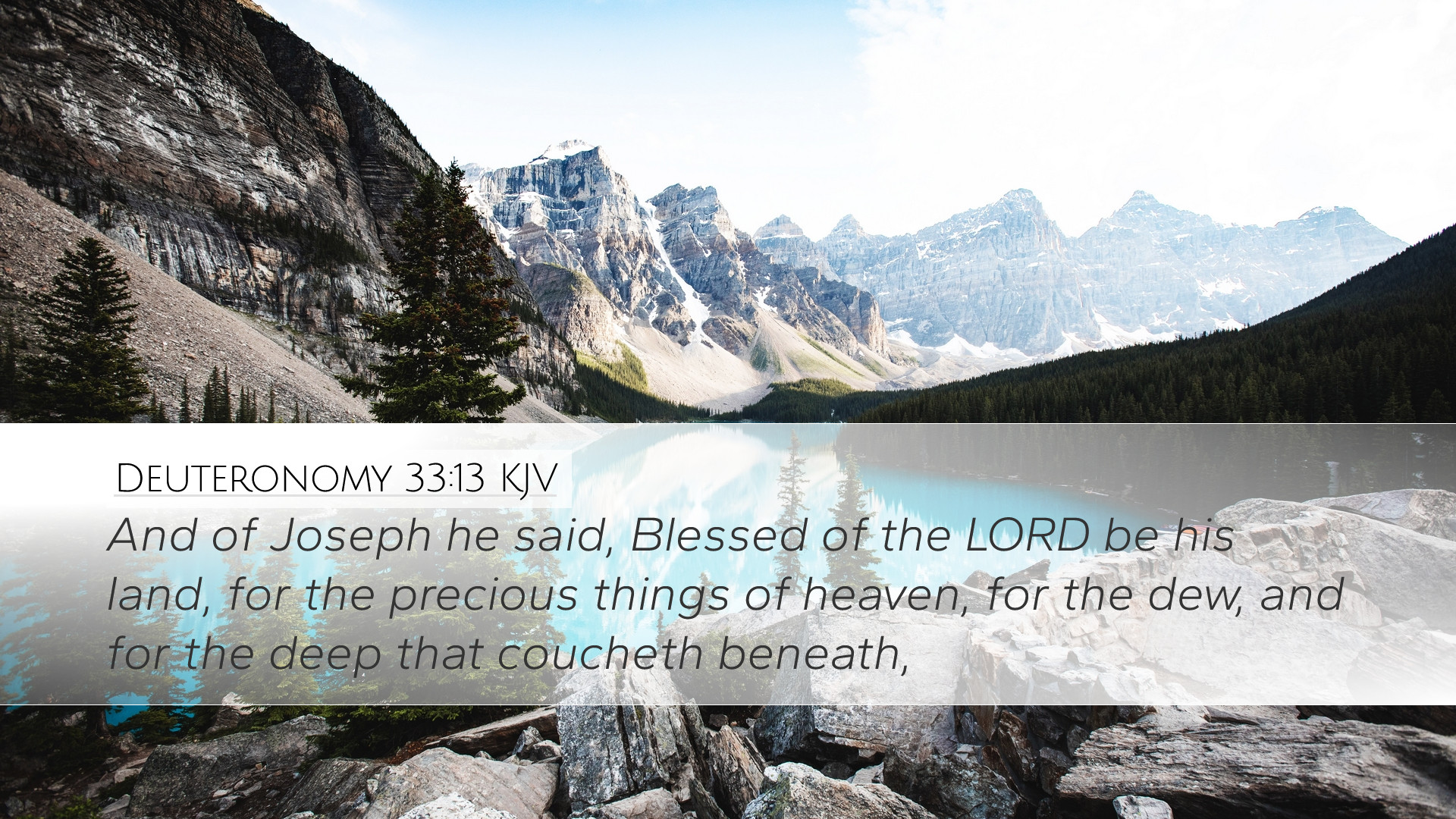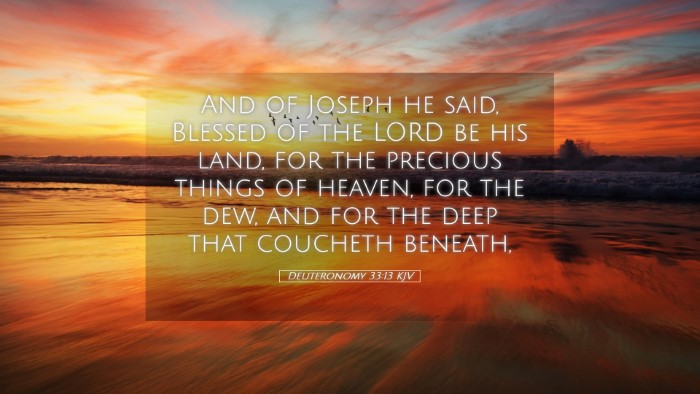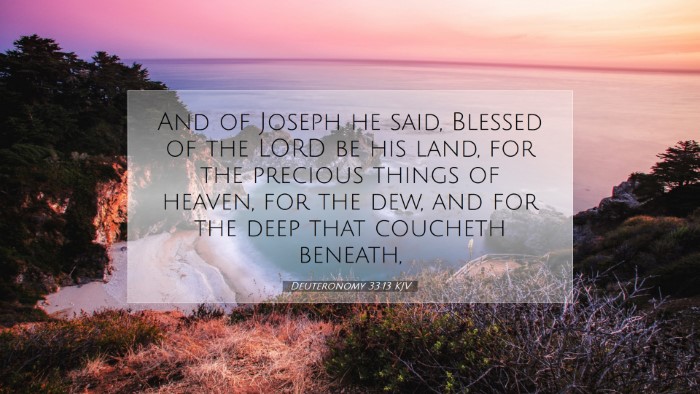Commentary on Deuteronomy 33:13
Deuteronomy 33:13 states: "And of Joseph he said, Blessed of the Lord be his land, for the precious things of heaven, for the dew, and for the deep that coucheth beneath." This verse is a part of Moses' final blessings over the tribes of Israel, emphasizing the unique position and blessings bestowed upon Joseph and his descendants.
Overview of the Context
The chapter is situated within the broader narrative of the Israelites' journey and represents Moses' farewell address. It serves to remind the people of God's faithfulness and the special roles of each tribe in the future of Israel.
Theological Insights
-
The Blessing of Land:
Moses invokes a divine blessing upon Joseph's land. This suggests that material prosperity is a sign of God's favor. As noted by Matthew Henry, "the earth is the Lord's, and the fullness thereof," indicating that such blessings are not mere material gain, but spiritual benefits flowing from obedience to God.
-
Heavenly and Earthly Riches:
The reference to "the precious things of heaven" speaks to both physical and spiritual prosperity. Albert Barnes expounds that while the land yields its best fruits, it is also nourished by the blessings which come from above—spiritual wisdom, guidance, and strength necessary to cultivate one's land and life.
-
The Significance of Dew and Depth:
Dew symbolizes the refreshing presence of God, while "the deep that coucheth beneath" signifies hidden resources. Adam Clarke points out that God's provisions come in various forms, and His blessings might not always be visible or immediately apparent.
Joseph's Unique Role
Joseph's position among the tribes of Israel is particularly noteworthy. Though he was sold into slavery, he rose to prominence in Egypt and ultimately played a pivotal role in preserving the nation during famine. Moses' blessings reflect an understanding of Joseph's hardships and triumphs.
-
Symbol of Redemption:
Joseph embodies the theme of redemption and restoration. The blessings pronounced here are indicative of the complete reversal of his earlier misfortunes. This precedes the greater narrative of God's redemptive plan, which culminates in Jesus Christ, as highlighted by Matthew Henry.
-
Implication for Future Generations:
The blessings upon Joseph are not only for him but extend to the tribes descending from him—Ephraim and Manasseh. This highlights the multi-generational aspect of God's blessings. Albert Barnes emphasizes that God’s favor upon one generation can lead to blessings for many to come.
Applications for Today
-
Recognizing God’s Blessings:
Modern readers are encouraged to recognize both spiritual and physical provisions as gifts from God. Believers today, like Joseph, may experience trials, but they are reminded that God has greater plans and riches in store. Adam Clarke prompts readers to appreciate both visible and hidden blessings.
-
Faithfulness and Stewardship:
This verse calls believers to faithful stewardship of the blessings, both spiritual and material. It’s an invitation to cultivate what has been given, ensuring that God’s gifts are used for His glory and the benefit of others.
Conclusion
Deuteronomy 33:13 serves as a rich reminder of God's providence and favor upon Joseph and his descendants, which extends to us today. It emphasizes that blessings come from the Lord, manifesting both in the natural and spiritual realms. Pastors, students, and theologians can find deep encouragement in this passage, as it reinforces the principle that God's hand leads to prosperity, wisdom, and refreshment in both our personal lives and the communities we serve.


